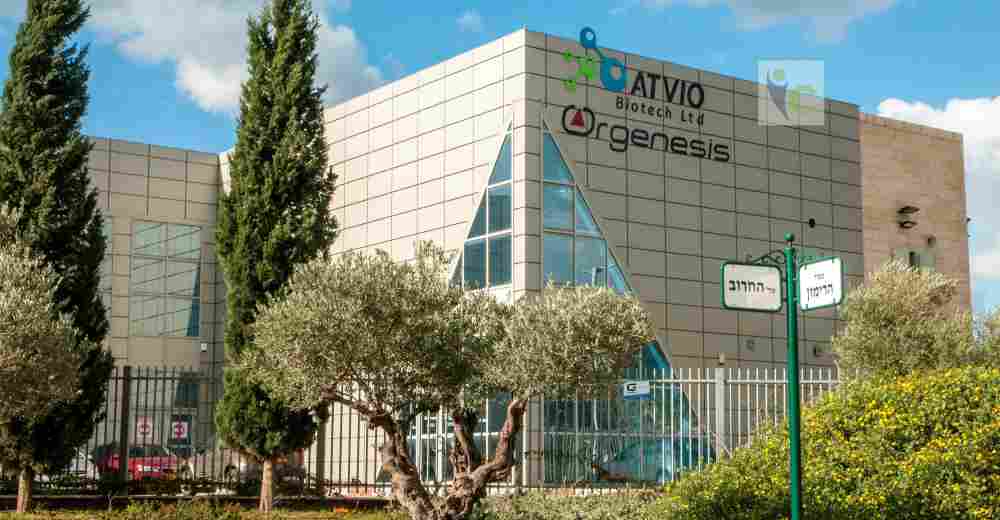Headquartered at the Evry Genopole, Eukarÿs SAS (eukaryotic universal expression system) is a French biotechnology company. It was created to develop products and applications from the C3P3 expression system, including a radically novel therapeutic approach named synthetic gene therapy, and the development of C3P3 cellular systems to increase protein and virus bio-production yields.
Eukarÿs developed the first ever non-viral eukaryotic expression system named C3P3 (chimeric cytoplasmic capping-prone phage polymerase) from the scratch. This artificial system generated by synthetic biology allows the autonomous production of messenger RNA (mRNA) in at high yields, and therefore the proteins of interest. The use the C3P3 system is decisive for the approach of synthetic gene therapy as it determines the effectiveness.
Eukarÿs’ synthetic gene therapy is based on a proprietary synthetic DNA production system and the C3P3 system, which determines its safety, efficacy, and good tolerance, as well as its production at a reasonable cost. In addition, the structure of the synthetic DNA used in synthetic gene therapy allows its use not only for the rare genetic diseases, but also the most frequent multifactorial diseases for which multiple genes or pathways should be targeted.
Based on this generic synthetic gene therapy technology, Eukarÿs is developing a pipeline of treatments for severe diseases without therapeutic solutions. Its first treatments are targeted on liver diseases. The company’s EUK-LPR, the first pro-regenerative treatment, which is the most advanced gene therapy treatment. It makes it possible to induce the regeneration of this organ before liver resection surgery. The first treatment trial of this on animals demonstrated its excellent efficacy and Eukarÿs has launched two new programs, one for liver diseases and the other for cancer therapy, which will be announced soon.
The Leading Light of Eukarÿs
Philippe JAÏS is the President and Scientific Director of Eukarÿs. He has a rich academic background with the degrees of MD, PhD, and MSc in physiology, molecular genetics, and biostatistics, respectively. He is a Hepato-Gastroenterologist and has specialized in molecular genetics of cancers as a PhD student and positional cloning as a post-doctoral fellow. He has served at various positions in a plethora of companies in the biotechnology industry, pharma companies in research, genetics, pharmacogenomics, translational medicine, genomic biomarkers, and early clinical development.
Philippe has designed and realized the early clinical development and biomarker strategy of many small chemical molecules and therapeutic proteins. He also invented an approach for large-scale identification of human monogenic pathologies treatable by synthetic chemical ligands of nuclear receptors. In 2009, Philippe invented the C3P3 technology that he developed until its proof of concept, before cofounding Eukarÿs. He has published more than fifty articles, books and abstracts, and is the inventor of several patents including all those of the company.
The Ingenious Solution
Eukarÿs has developed a unique non-viral, non-infectious, and non-integrative named synthetic gene therapy approach. This synthetic gene therapy exploits the C3P3 system and determines the effectiveness. In addition, the artificial DNA used for the synthetic gene therapy by Eukarÿs explains its safety, good tolerance, as well as its production at a reasonable cost. Moreover, the modular structure of these treatments makes them usable with minimal adaptation for the majority of human diseases, including monogenic and multifactorial disorders, which is virtually impossible for most existing gene therapy methods.
Although usable for the treatment of many organ diseases, the initial goal of the company is the creation of a pipeline of synthetic gene therapy treatments for severe liver diseases and diseases related to deficiencies in secreted proteins, with significant unmet medical needs. They have now extended this pipeline to oncology for the treatment of very frequent cancer.
In a business prospective, Eukarÿs develops its own pipeline, but is open to partnerships with Pharma and Biotech companies. The most interesting factor of the company which differentiates it from the rest is that all its technologies were developed from scratch and are under constant evolution.
Why Synthetic Gene Therapy?
“Today, gene therapy can only be used for some ultra-rare and ultra-severe diseases in some ultra-rich countries. Our ambition is to make synthetic gene therapy accessible to a large number of patients for a large number of diseases today without a therapeutic solution,” says Philippe. Eukarÿs’ synthetic gene therapy approach excels all others.
Gene therapy needs to be safe: The risk of integration of virus leading to cancer limits the use of viral gene therapy to ultra-severe disorders for which the risk is acceptable. Eukarÿs synthetic gene therapy is devoid of this risk.
Gene therapy needs to be well-tolerated: Viral gene therapies, as well as the synthetic RNA are usually poorly tolerated, which is a significant drawback, especially for chronic disorders. Eukarÿs gene therapy uses a specific design of the synthetic DNA, which explains the good tolerance of synthetic gene therapy and allows its long-term uses.
Gene therapy has to be efficient: The classical non-viral gene therapy and the synthetic RNA are notably inefficient because the amount of target mRNA produced or uptaken by the cells with these technologies is drastically low. The synthetic DNA exploits the performances of the C3P3 expression system, which is a proficient system to produce high amounts of target mRNA in the cells.
Gene therapy should economically accessible: Today, the cost of production of a single dose for patient of recombinant virus is ranging from €200,000-€600,000! In addition, due to the immunogenicity and/or the episomal nature of the viral gene therapy, re administration of viral gene therapy is probably needed every few years, which increases its costs further. In contrast, the synthetic DNA used for Eukarÿs’ synthetic gene therapy can be produced at reasonable cost.
Gene therapy should be used for a broad number of diseases and not some ultra-rare monogenic disorders: This is not only due to cost of viral gene therapy, but also due to technical limitations, since only one small genes can be used for viral vector constructions. In contrast, the synthetic DNA used by Eukarÿs can assemble several genes with no length limitations. Therefore, Eukarÿs’ synthetic gene therapy can be used not only for the rare genetic diseases, but also the most frequent multifactorial diseases.
Awards and Accolades
Eukarÿs has won several awards through the years. This includes, French Competition “Concours de Création d’Entreprises de Technologie Innovantes” in 2009 and a second time in 2011 in the Creation category, which is the highest possible reward, Techninov award, and Ubistart award. Additionally, the company was also labeled as Young Innovative Company by the French Ministry of Research and Innovative Biocluster Enterprise by Polinvest’s from the Ile-de-France Medicen Competitiveness Cluster.
What’s Ahead?
Eukarÿs aims to demonstrate the efficacy of the synthetic gene therapy in phase I/IIa clinical study, in 2023. It anticipates that this will introduce the company on the public market. It, then, plans to extend its therapeutic approach to many other therapeutic fields. In 2022-2023, Eukarÿs also anticipates of creating a subsidiary or a branch of Eukarÿs dedicated to protein and virus bio-production using the C3P3 technology, possibly in the USA.















